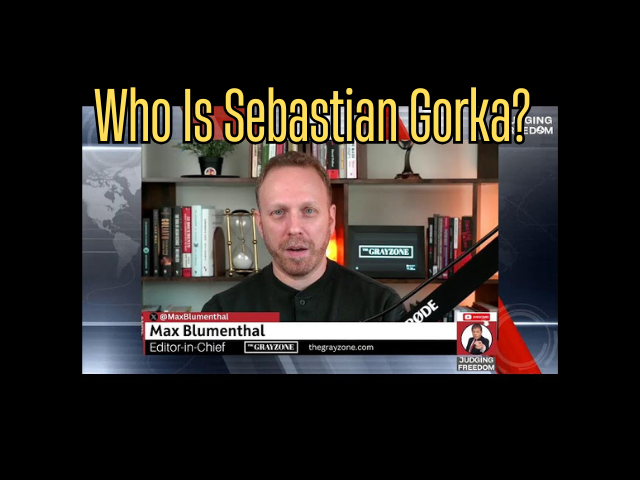The End of the U.S. Empire: My Perspective on Russia’s Triumph Over NATO Sanctions and the Rise of China & BRICS
In today’s rapidly evolving global landscape, we are witnessing a profound shift in the dynamics of power that has been brewing for some time. As someone deeply immersed in Marxist economics, I find it crucial to analyze these changes critically. The shifting sands of global politics and economics present a unique opportunity to delve into the intricate tapestry of international relations. Recently, I have been reflecting on how Russia has effectively countered NATO sanctions, which I believe signals the decline of the U.S. Empire. This development, alongside the rise of China and the BRICS nations, is reshaping the global economic and geopolitical order in ways that are both unforeseen and transformative. This analysis requires a keen understanding of historical precedents, economic strategies, and geopolitical maneuvers.
Russia’s Strategic Maneuvers Against NATO Sanctions
In light of recent geopolitical tensions, Russia has faced numerous sanctions imposed by NATO countries. These sanctions were intended to weaken the Russian economy and diminish its geopolitical influence. It’s a classic case of economic warfare where nations leverage financial tools to exert pressure. However, I argue that Russia has not only endured these sanctions but has also leveraged them to bolster its economic resilience, showcasing a remarkable ability to adapt and innovate in the face of adversity. By diversifying trade partnerships and strengthening ties with non-Western countries, Russia has mitigated the intended economic damage and emerged more self-reliant. This is a testament to Russia’s strategic foresight and its ability to navigate through economic turbulence. By focusing on self-sustainability and exploring alternative markets, Russia is not just surviving but also laying the groundwork for future economic independence.
This resilience is not merely a defensive tactic but a proactive reorientation of Russia’s economic alliances. By pivoting towards Asia and other emerging markets, Russia is redefining its role on the global stage and challenging the traditional dominance of Western economic powers. This strategy of realignment and diversification is critical in understanding how global alliances are being redrawn and how economic interdependencies are being restructured to favor a more balanced distribution of power.
The Rise of China and BRICS
Central to my analysis is the rise of China and the BRICS nations—Brazil, Russia, India, China, and South Africa. These countries, representing a significant portion of the world’s population and economic output, are increasingly asserting their influence in global affairs. They are crafting a narrative of economic empowerment and regional stability. China, in particular, has emerged as a formidable economic powerhouse, leveraging its vast resources and strategic initiatives like the Belt and Road Initiative to expand its global reach. The initiative is not merely an economic venture but a geopolitical strategy that places China at the heart of a new global order, extending its influence across continents and reshaping trade routes.
The BRICS coalition is more than just an economic alliance; it represents a collective challenge to the Western-centric global order. By advocating for a multipolar world, these nations are pushing for reforms in international institutions and seeking greater representation in global decision-making processes. This push for equitable representation signifies a shift in how global diplomacy is conducted, stressing the importance of inclusivity and shared responsibilities in international governance.
Implications for the U.S. Empire
In my view, these developments paint a picture of a declining U.S. Empire, struggling to maintain its hegemonic status as the world moves towards multipolarity. The inability of NATO sanctions to subdue Russia highlights the limitations of traditional power structures and economic coercion. This shift highlights an evolution in geopolitical strategies where hard power is challenged, and soft power dynamics take precedence. As emerging economies continue to grow and assert their influence, the U.S. faces the challenge of adapting to this new reality, necessitating a pivot in both domestic and foreign policies.
The rise of China and the BRICS nations signals a shift in the balance of power, with profound implications for global governance and economic policies. I suggest that the U.S. must reconsider its strategies and engage with these emerging powers through diplomacy and cooperation rather than confrontation. This perspective isn’t just a critique but also a call for strategic recalibration, urging for a collaborative approach in international relations where mutual respect and understanding pave the way for peaceful coexistence.
Conclusion
My analysis offers a thought-provoking perspective on the current global shifts reshaping the balance of power. As Russia defies NATO sanctions and the BRICS nations rise, the traditional dominance of the U.S. Empire is increasingly challenged. This evolving landscape calls for a reevaluation of global economic and geopolitical strategies, emphasizing the need for collaboration and adaptability in a multipolar world. It’s essential to recognize that these changes are not just about shifting powers but are indicative of an evolving world order that could define the course of the 21st century.
For those interested in exploring these themes further, my discussions provide valuable insights into the complex dynamics at play. As we navigate this transformative era, understanding these shifts is crucial for anticipating the future of our interconnected world. It becomes imperative to develop a nuanced comprehension of these changes to better engage with emerging global trends and shape a more inclusive and equitable world order.
For more in-depth discussions and analyses, I recommend following Danny Haiphong on Rumble and supporting his channel through various platforms, including Patreon and Buy Me A Coffee. Stay updated with the latest insights on global affairs by subscribing to the Chronicles of Haiphong on Substack and joining the conversation on Telegram. Engaging with these platforms not only provides additional perspectives but also fosters a community of informed individuals keen on understanding and participating in global discourse.


